Association of Cell-Free DNA Tumor Fraction and Somatic Copy Number Alterations With Survival in Metastatic Triple-Negative Breast Cancer
- PMID: 29298117
- PMCID: PMC5815405
- DOI: 10.1200/JCO.2017.76.0033
Association of Cell-Free DNA Tumor Fraction and Somatic Copy Number Alterations With Survival in Metastatic Triple-Negative Breast Cancer
Abstract
Purpose Cell-free DNA (cfDNA) offers the potential for minimally invasive genome-wide profiling of tumor alterations without tumor biopsy and may be associated with patient prognosis. Triple-negative breast cancer (TNBC) is characterized by few mutations but extensive somatic copy number alterations (SCNAs), yet little is known regarding SCNAs in metastatic TNBC. We sought to evaluate SCNAs in metastatic TNBC exclusively via cfDNA and determine if cfDNA tumor fraction is associated with overall survival in metastatic TNBC. Patients and Methods In this retrospective cohort study, we identified 164 patients with biopsy-proven metastatic TNBC at a single tertiary care institution who received prior chemotherapy in the (neo)adjuvant or metastatic setting. We performed low-coverage genome-wide sequencing of cfDNA from plasma. Results Without prior knowledge of tumor mutations, we determined tumor fraction of cfDNA for 96.3% of patients and SCNAs for 63.9% of patients. Copy number profiles and percent genome altered were remarkably similar between metastatic and primary TNBCs. Certain SCNAs were more frequent in metastatic TNBCs relative to paired primary tumors and primary TNBCs in publicly available data sets The Cancer Genome Atlas and METABRIC, including chromosomal gains in drivers NOTCH2, AKT2, and AKT3. Prespecified cfDNA tumor fraction threshold of ≥ 10% was associated with significantly worse metastatic survival (median, 6.4 v 15.9 months) and remained significant independent of clinicopathologic factors (hazard ratio, 2.14; 95% CI, 1.4 to 3.8; P < .001). Conclusion We present the largest genomic characterization of metastatic TNBC to our knowledge, exclusively from cfDNA. Evaluation of cfDNA tumor fraction was feasible for nearly all patients, and tumor fraction ≥ 10% is associated with significantly worse survival in this large metastatic TNBC cohort. Specific SCNAs are enriched and prognostic in metastatic TNBC, with implications for metastasis, resistance, and novel therapeutic approaches.
Figures
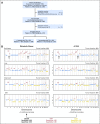
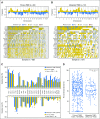

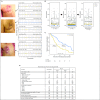

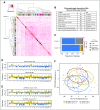
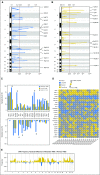
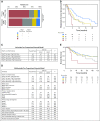
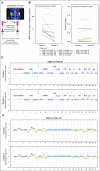
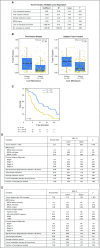
Comment in
-
Circulating Tumor DNA Guides Prognosis in Metastatic Triple-Negative Breast Cancer.J Clin Oncol. 2018 Feb 20;36(6):523-524. doi: 10.1200/JCO.2017.76.5461. Epub 2018 Jan 3. J Clin Oncol. 2018. PMID: 29298118 No abstract available.
References
-
- Turner NC, Reis-Filho JS: Tackling the diversity of triple-negative breast cancer. Clin Cancer Res 19:6380-6388, 2013 - PubMed
-
- Bauer KR, Brown M, Cress RD, et al. : Descriptive analysis of estrogen receptor (ER)-negative, progesterone receptor (PR)-negative, and HER2-negative invasive breast cancer, the so-called triple-negative phenotype: A population-based study from the California Cancer Registry. Cancer 109:1721-1728, 2007 - PubMed
Publication types
MeSH terms
Substances
Grants and funding
LinkOut - more resources
Full Text Sources
Other Literature Sources
Miscellaneous

